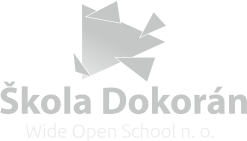Educated and confident Roma children
The baseline for community development
About the project
THE OVERALL GOAL of this project was to prepare and pilot a comprehensive, innovative and well-functioning model of education for children aged 0-8 and to share a positive and successful experience with the wider public administration and municipalities.
SPECIFIC GOALS
- To improve the responsiveness and accountability of local authorities, particularly elected and senior civil servants, towards marginalised Roma communities;
- To build the capacity of local authorities and Roma community representatives to develop and implement policies and public services that are inclusive of all, including Roma;
- To strengthen Roma families in Roma communities by supporting Roma parents (both mothers and fathers) in their efforts to raise their children in a safe, secure and caring family environment;
- To provide parents with information, social skills and knowledge about early childhood development, the importance of their role, information regarding alternative, effective parenting techniques, to promote better communication and understanding between parents and their children, to complement their children's discovery and learning experiences, and to ptomote positive parental attitudes towards education;
- To increase the level of enrollment of Roma children in kindergartens;
- To clarify to Roma parents the importance of the early childhood education and care in pre-school facilities;
- To increase mutual tolerance between Roma and non-Roma parents;
- To increase the range of educational materials for children, especially those from marginalized Roma communities;
- To improve and build the trust between all the involved stakeholders;
- To eliminate the inadequate parenting of Roma children from socially disadvantaged environment;
- To teach Roma children/all children how to meaningfully spend their leisure time;
- To help Roma parents prepare their children for school;
- To teach Roma children how to learn;
- To improve the socialisation skills of Roma children;
- To improve the educational results, behaviour and school attendance of Roma children.
Activities:
1. Creating of a functioning model of stakeholder collaboration in the participating municipalities
- Raising awareness and commitment of local authorities to Roma inclusion
- Agreeing on what needs to be done to improve the educational level of the Roma community
- Establishing and operating Local Action Teams (LATs) composed of local Roma community representatives and municipal staff to plan, prepare, monitor and evaluate actions to improve the educational results and levels of the Roma community
- Delivery of training for Local Action Teams - Governance and Leadership in Multicultural Environment, Interculturality, Inclusive Policies and Strategies, Communication and Self-organizing, Access to EU funding mechanisms and project writing/management
- Visits to EU countries with the high experience with the integration and inclusion of minorities (Belgium – Ghent, UK – Cardiff, London)
2. Romani parents as competent first educators
- Education for Social Justice workshops for trainers/preschool teachers (anti-bias training)
- Education for Social Justice workshops for parents (anti-bias training)
- Parenting with Confidence workshops for trainers/preschool teachers
- Parenting with Confidence workshops for parents
- Home-visiting programme (home visits, workshops directly in Roma households)
3. Activities for pre-school children and their teachers
- Motivational workshop for Roma parents – Topic: Importance of pre-school attendance
- Workshops and joint cultural activities for Roma and non-Roma parents – Getting to know each other
- Establishment of a new TOY LIBRARY – lending TOYS and BOOKS
- Joint educational activities in the TOY LIBRARY for Roma and non-Roma parents and their children
4. Activities for elementary school children and their teachers - the all-day education system
Organising extracurricular and recreational activities with the aim of providing pupils with rich opportunities to explore their immediate cultural and natural environment in order to develop their imagination, creativity and interest in exploring their surroundings; enabling pupils to learn about their own abilities and potential for development and to develop their capacity to learn and to learn about themselves; stimulating pupils' cognitive processes and ability to think critically and creatively through their own cognitive experience and active problem solving; developing pupils' ability to communicate and understand in an equitable manner; and to promote the development of intrapersonal and interpersonal skills, to openly engage in social relationships, to cooperate effectively, to develop social sensitivity and sensitivity towards their fellow pupils, teachers, parents, other people in the community and their wider and natural environment, to lead pupils to tolerance and acceptance of other people and their spiritual-cultural values, to teach pupils to apply and at the same time to fulfil their duties, to be responsible for their health and to actively protect and consolidate it. Regular meetings between parents and teachers/educators are also part of this activity. All-day education on a daily basis.

